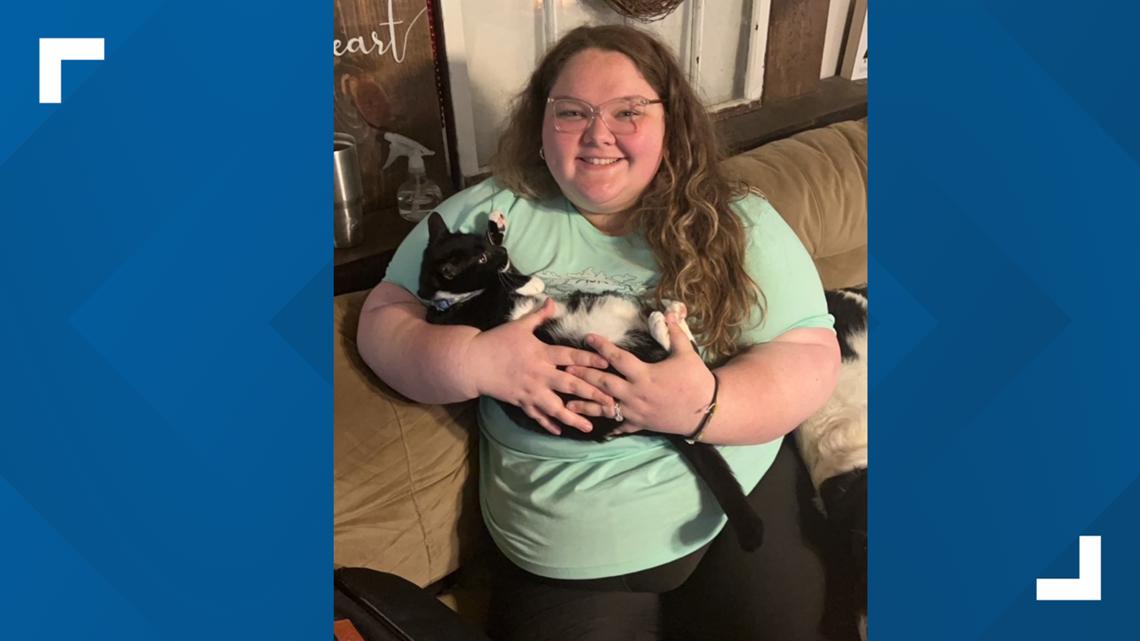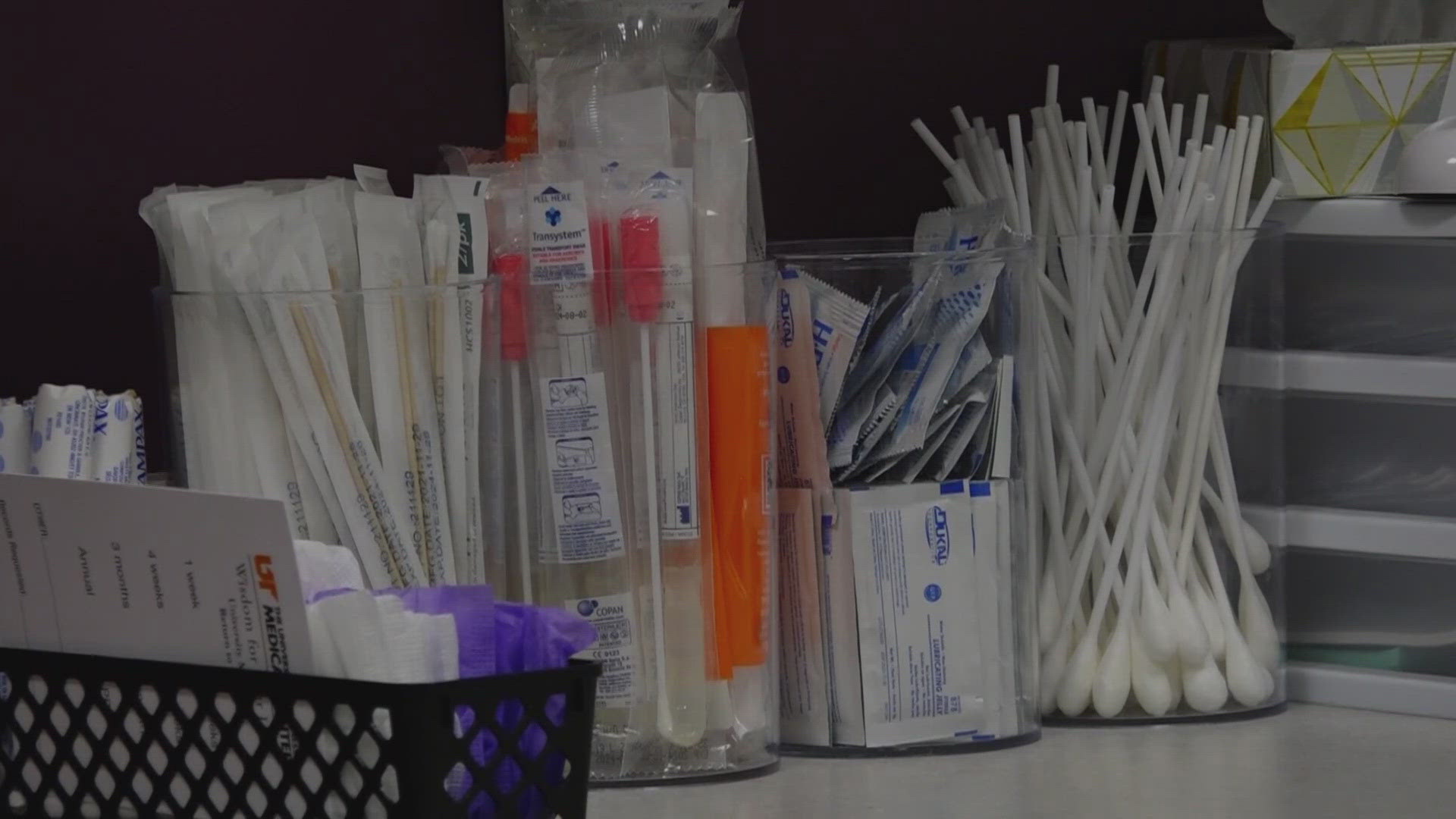KNOXVILLE, Tenn. — Cat Steele's morning routine has become a ritual.
She packs meals for the workday and several vitamins to help regulate her hormones.
"I have to be really mindful of things that cause inflammation in my body, because that can lead to a lot of really negative symptoms," Steele said.
At 28 years old, managing her symptoms has been a struggle since she was first diagnosed as a teenager with Polycystic ovary syndrome—more commonly known as PCOS.
"I would be in so much pain during my cycle that there were days I missed school, I would be doubled over in bed, I could barely walk," Steele said.


An ultrasound found cysts on her ovaries and bloodwork revealed high levels of testosterone. Doctors tried 11 different contraceptives and medication to help regulate her insulin.
"Within a year and a half, I had gained 120 pounds. I had dealt with mental health issues, and then all of a sudden, my hormones were shredded," Steele said. "I was so ashamed that I had this, and the only thing my doctor told me was you need to lose weight, and we're gonna put you on birth control."
The World Health Organization calls PCOS a significant public health problem affecting 8% to 13% of reproductive-aged women. Yet, up to 70% of them are undiagnosed, leaving many feeling frustrated and confused about how to manage this lifelong condition.
PCOS affects women during the reproductive years, but symptoms among patients vary including irregular periods, excess facial and body hair, severe acne and enlarged ovaries which, in some cases, can cause infertility.
Signs are typically more severe in women with obesity. Those with a family history of type 2 diabetes are at higher risk for PCOS.
But doctors don't know exactly what causes it, and more women like Steele are scouring the internet looking for answers.
Danielle Riley, a 10News employee, was recently diagnosed with PCOS and like Steele has found managing the disorder confusing.
Riley started searching online and has found community with others right here in East Tennessee struggling with the same frustrations.
"There's this entire subgroup of girls in the area that knows what they're doing and have experienced it before me, and so I just started asking a bunch of questions and trying to figure out like, 'Okay, so what works, what doesn't work?'" Riley said.
Riley has started an Instagram account to document her fitness journey, hold herself accountable and share what she is learning in the process.


Dr. Allison Eaton, MD, is an obstetrics and gynecology specialist practicing at UT Medical Center. She said physicians have differing opinions on how to manage PCOS because there is no "one size fits all solution."
But, Eaton said leaving it unmanaged can lead to an increased risk of developing uterine cancer, heart disease or diabetes.
"Weight management definitely can help, and you don't have to get to a normal BMI. Just losing 5 to 10 percent of your body weight can make a big difference," she said.
"Having PCOS for a lot of people makes it much harder to lose weight because of the metabolism issues that you carry, so for me that resulted in having weight loss surgery three months ago," Steele said.
Steele has found a doctor who is helping her navigate solutions that are working.
"I feel great!" she said. "I've lost 70 pounds in the last four months."
In May she gave a commencement speech at her graduation from the University of Tennessee College of Social Work.


It is a milestone she's proud of, and she is feeling better than ever.
"Just getting to a healthier space overall is really my goal right now so that I can just, you know, do all the things I want to do in the future," she smiled.

